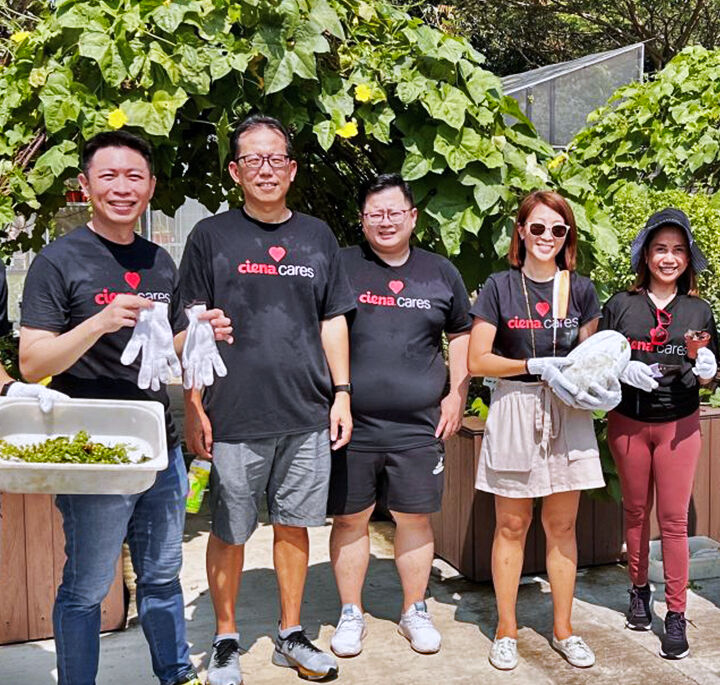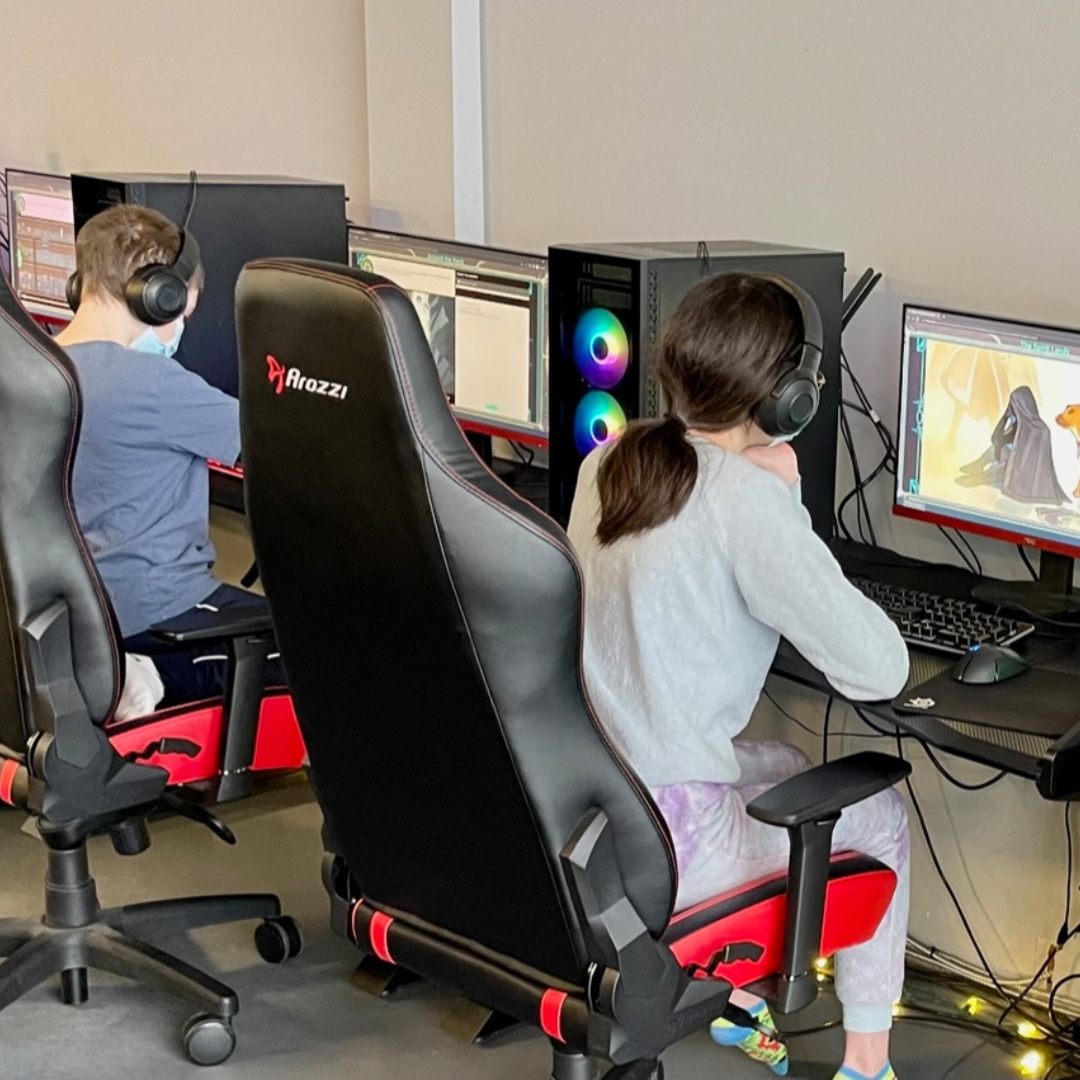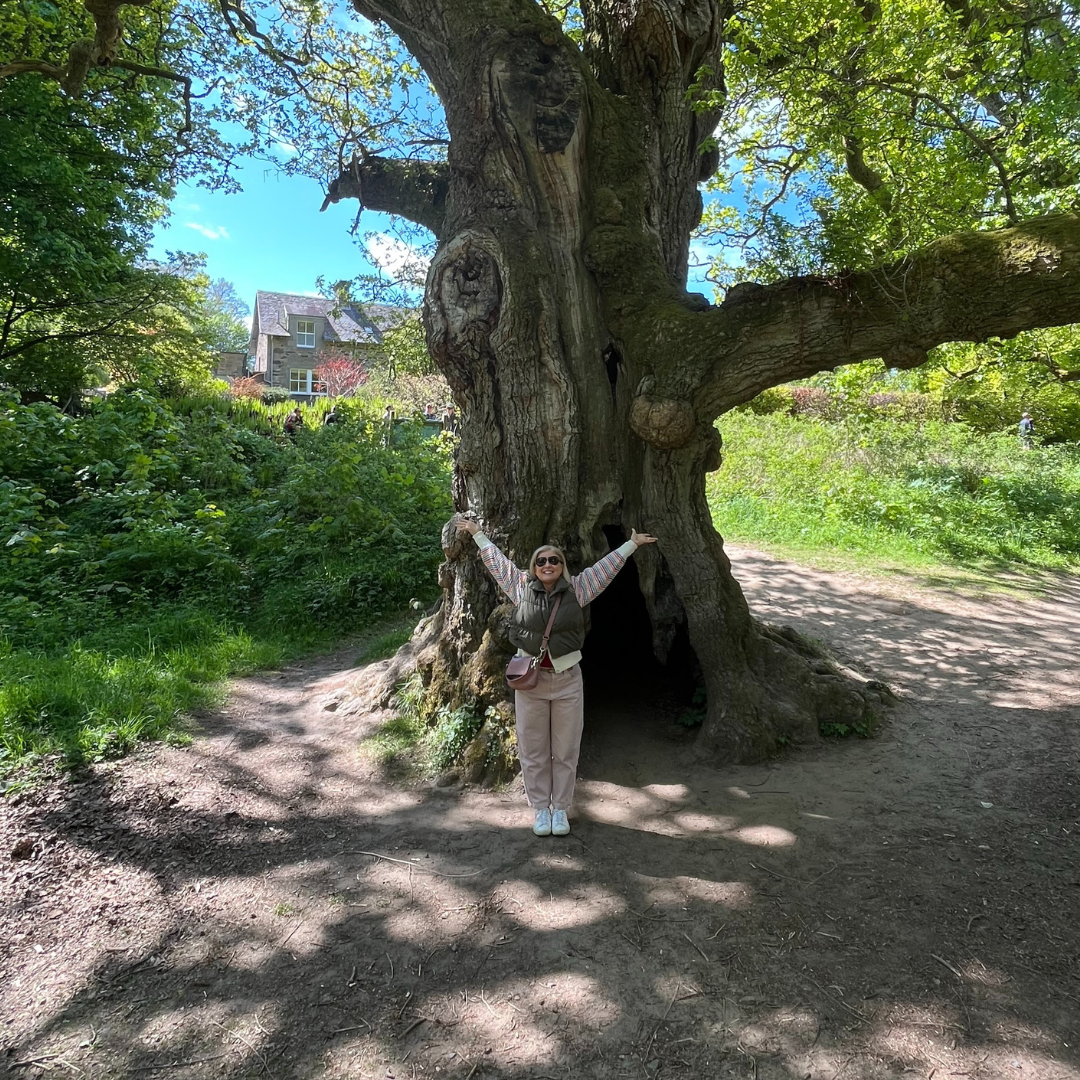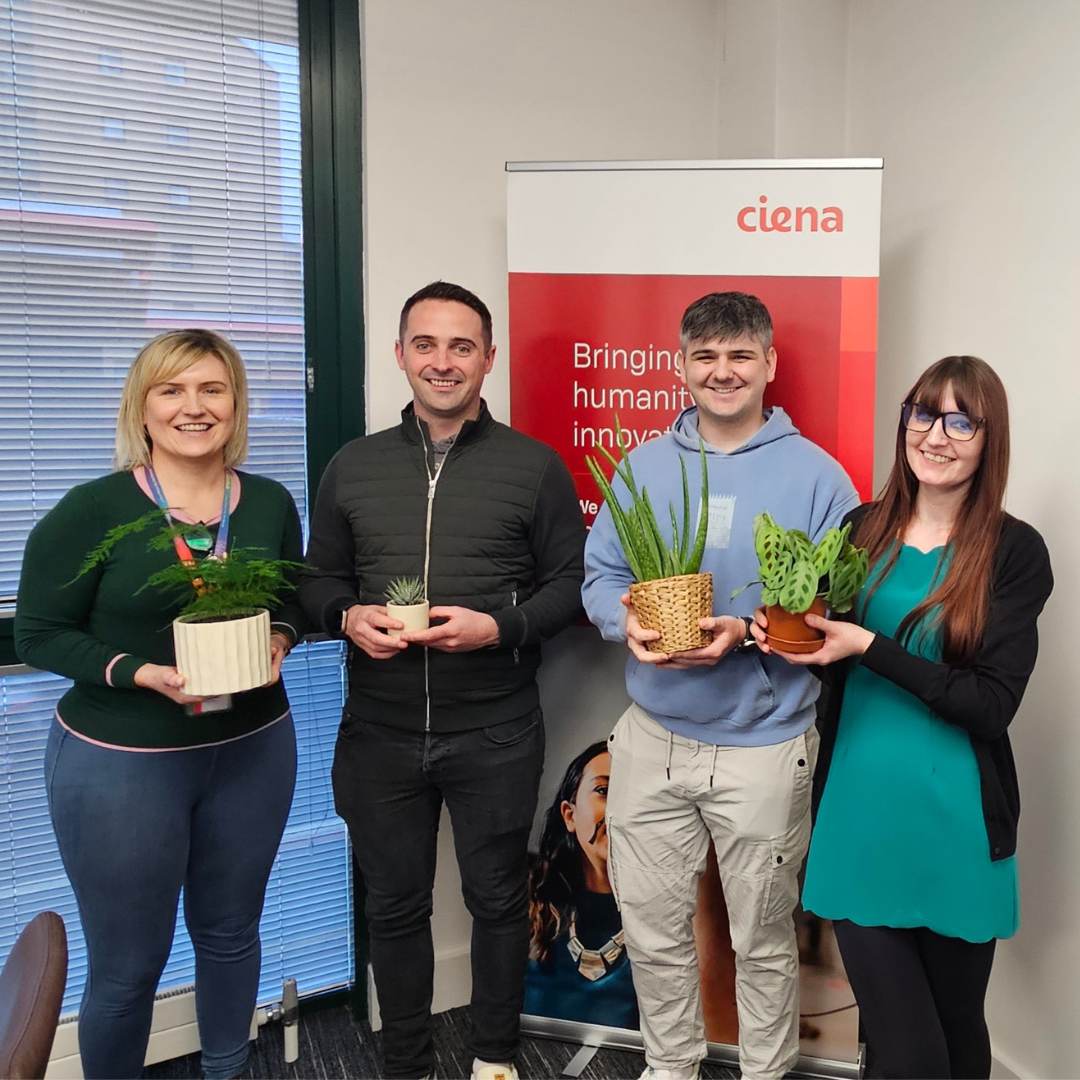Building a digital future for students across the globe
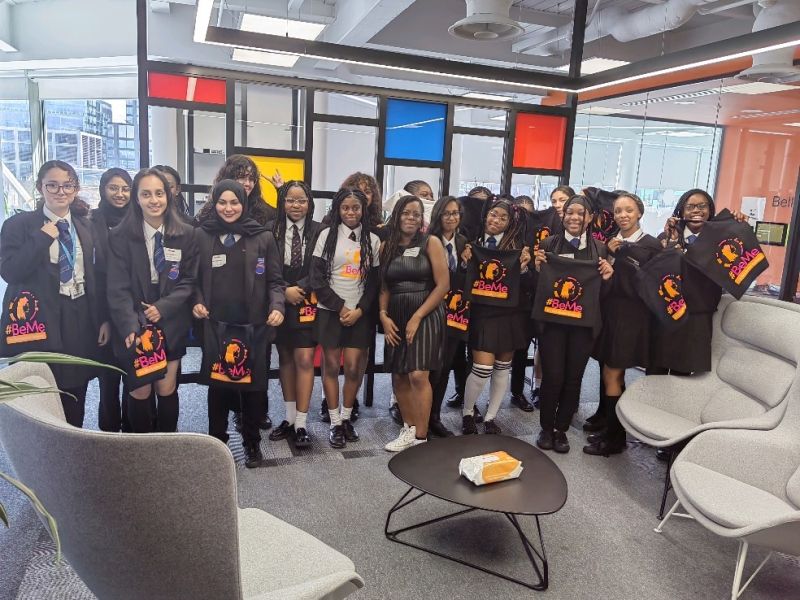
A visit with Academy Achievers at our office in London, UK
Now more than ever, our daily lives rely heavily on the need for more accessible and reliable residential broadband. And, during the Covid-19 pandemic – with lockdowns and school closures, many students were faced with limited or no access to the internet that was necessary to be successful in school.
Despite significant progress to improve connectivity, a report by the United Nations’ International Telecommunications Union (ITU) found that 2.9 billion people still remain offline and from the 4.9 million who are online, hundreds of millions of them have infrequent access to devices or have unreliable service.
As a key enabler of innovations that drive connectivity, we want to ensure that underserved students have equal access to the internet, technology and digital skills they need to be future-ready. We also recognize that with connectivity brings digital skills and knowledge that can unlock opportunities for students.
Digital skills are becoming increasingly important in the workplace, as 69 percent of jobs across New Zealand, United States, Singapore, Australia and Canada and 85 percent of jobs in the European Union required digital skills in 2019. But, in a 2022 survey, only 31 percent of Generation Z respondents felt ‘very equipped’ for a digital-first job right now. We want to do our part to ensure that future generations are prepared.
To expand our efforts to improve global connectivity, Ciena launched our Digital Inclusion program in May 2020, aimed at enhancing the lives of students who lack or have limited internet access to broadband. We have committed $10 million USD over a five-year period to enable greater access to affordable connectivity, technology, and programs that foster digital skills to expand opportunities for 100,000 underserved students in our global communities.
In order to attain the global reach we wanted, we teamed up with some of our customers to help connect and support students around the world in their digital learning. We have also engaged our people to nominate organizations in their local communities to receive funding that will help youth gain digital skills and the access that they need to succeed. Let’s take a look at some of the projects we’ve been working on.
When school closures first began and students were transitioning to remote learning in the United States, we partnered with Verizon’s education initiative, Verizon Innovative Learning, to support those at under-resourced Title I schools during the pandemic. We provided students at the Baltimore Design School in Baltimore, MD and the Hubbard Media Arts Academy in San Jose, CA with the resources they needed to be prepared for online learning including, iPads, keyboards, headphones, device protection, mobile device management, and a coaching stipend to help enable remote learning.
In New Zealand, we addressed digital inequity by partnering with the Spark Foundation and Skinny Jump to provide free in-home internet access to students at decile one high schools. The Ciena Jump for Students Fund is a $500,000 fund that provides eligible students with a free Skinny Jump wireless modem and broadband connection so they could continue in their learnings from home during the pandemic. We recently extended this commitment for another year.
We have also worked with Academy Achievers, a not-for-profit organization in London, UK, to help close the digital and educational gaps among students who are interested in careers in science, technology, engineering and math (STEM). Through this partnership, we have funded 400 laptops for students across 20 schools and provided mentoring and employee engagement opportunities with them.
In addition, we partnered with the Bharti Foundation to create Digital Classrooms and Advanced Technology Labs programs at Satya Bharti Schools in rural Punjab and Haryana, India. Through this investment, we funded the educational technology used in the Digital Classrooms to support students’ learning, exposing them to multimedia content and educational apps that help to create an immersive learning experience. The Advances Technology labs give students a hands-on learning experience in programming through robotics and gaming, facilitated with the help of 3D modeling kits, printers, and laptops, as well as local trainers. We enhanced this partnership in 2023 with the introduction of Language and Computer Labs in Satya Bharti Adarsh Senior Secondary Schools, Punjab, helping students improve their language skills in the areas of listening, speaking, reading, and writing, as well as their IT skills.
These are just a few of our partnerships that are helping to drive digital inclusion for students globally. We are proud of our current progress and will continue to work to close the digital gaps among students around the world, enabling greater access to connectivity and technology to empower the next generation of creators, thinkers and changemakers.



